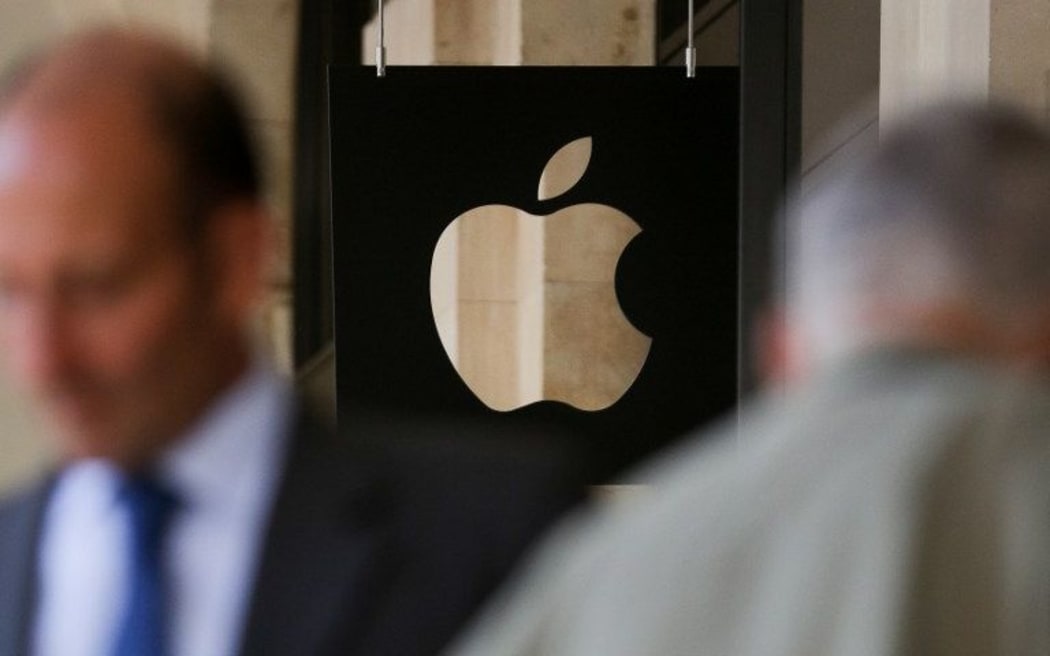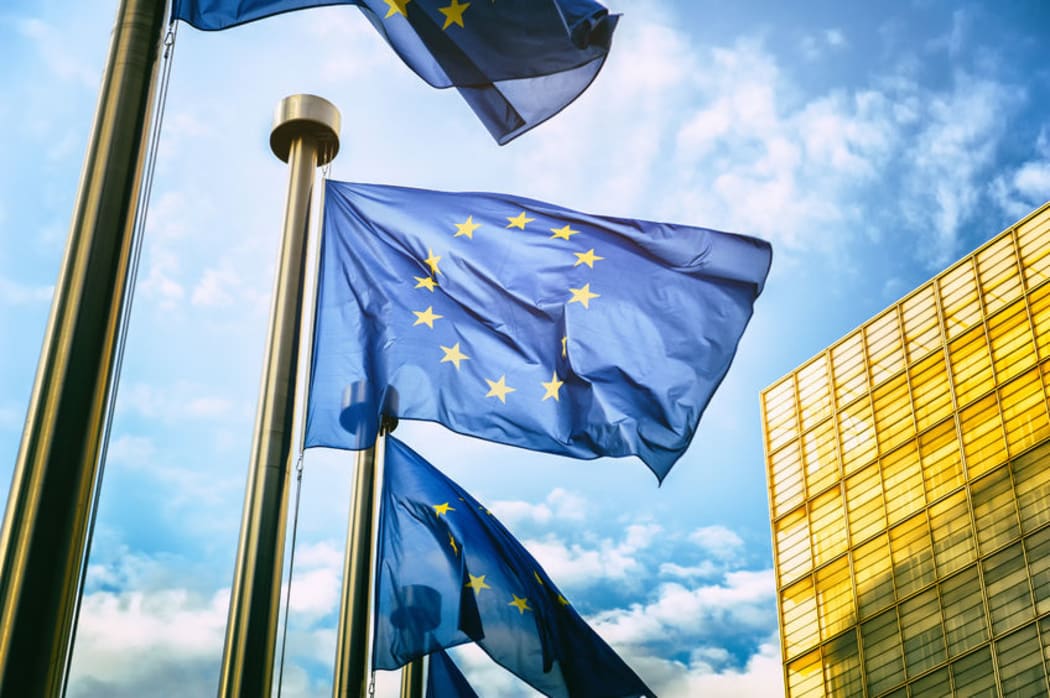A ruling that Apple should pay €13 billion in back taxes to Ireland has renewed scrutiny of the tech company's tax arrangements in New Zealand.
After a three-year investigation, the European Commission concluded overnight that Ireland granted undue tax benefits to Apple that were illegal under the EU's state aid rules.

The European Commission ruling has angered Apple, which says it never asked for special tax deals from Ireland. Photo: AFP
The ruling, which Apple has indicated it will appeal, has once again turned a spotlight on what taxes multinationals pay - or do not pay - in countries around the world.
In its 2015 financial year, Apple Sales New Zealand earned $732 million in revenue. But its financial statements show $701m of that was gobbled up by the cost of sales here - leaving just over $30m in profit.
It paid tax on that profit of $8.9m.
All up, Apple has paid just $27.2m in tax in New Zealand over the last five years - less than one percent of the $2.8bn it has made in revenue in that time.
Earlier this year, RNZ's Checkpoint presenter John Campbell, following Apple founder Steve Job's mantra to "question everything", attempted to find out why the company's costs in New Zealand were so high.
Apple staff refused to explain those costs and also would not provide an address for Apple's physical corporate office in New Zealand.
The only address listed for its New Zealand subsidiary is that of its law firm, Bell Gully.
RNZ contacted Apple's Australasian corporate office in Sydney today, to ask again about its New Zealand costs and tax arrangements.
No one had responded by the time this article was published.

The European Commission says Apple paid an effective corporate tax rate of 0.005 percent on its European profits in 2014. Photo: 123rf
Prime Minister John Key said officials would take a close look at the European Commission ruling, to see if there was anything that would help New Zealand close tax loopholes.
But New Zealand was already working with the OECD to make sure multinationals were paying their fair share of tax and he did not know whether the ruling would add anything new, he said.
"I've doubt our officials will take a look at exactly the loophole they [the EU] are closing down and how they've decided to apply that tax liability on Apple, but every country's tax rules are different and Apple would be a much more significant player in Ireland than in New Zealand."
He did not have any advice suggesting what Apple was doing in New Zealand was illegal, he said.
But it was possible companies could take advantage of the differences between tax rules in various countries.
"The question is whether the mismatch of those rules is something these multinationals can arbitrage and if they are, we would say on balance that's not fair even if it's legal," Mr Key said.
Other countries have also looked askance at how Apple - and other multinationals - manage their tax arrangements.
Earlier this month, the Australian Taxation Office (ATO) sent warning letters to 136 multinationals about its new, tougher approach to tax avoidance.
It invited any companies who suspected they could fall foul of that approach to come forward to discuss their offshore financing arrangements.
And a US senate sub-committee report claimed in 2013 that Apple had managed to reduce its tax bill there by $10bn a year for the four previous years.
NZ and Ireland: apples and oranges?
Economic commentator and publisher Bernard Hickey said there was no clear implication for New Zealand from the European Commission ruling, because Ireland was one of the most aggressive countries in using its tax regime to encourage multinationals to re-locate.
"The difference in New Zealand is that we don't actively use Irish-style techniques to encourage people to move here."
Those "Irish-style techniques" include a head-spinning set-up known as a double Irish, where a first Irish company that is tax-resident in a tax haven allows a second Irish company, this time actually a tax resident in Ireland, to use the first company's intellectual property in exchange for royalties or fees - which are then tax-deductible.
Although there might not end up being direct implications for New Zealand, the European ruling was still globally important, Mr Hickey said.
"It focuses the world's attention on the fact that companies like Apple and Facebook and Google don't pay big taxes anywhere."
If companies felt the jig was up, that could change their behaviour.
"When investors and auditors start to look at whether there are some big tax liabilities being built up here, it becomes a big issue for companies ... and that becomes a worry for them."






